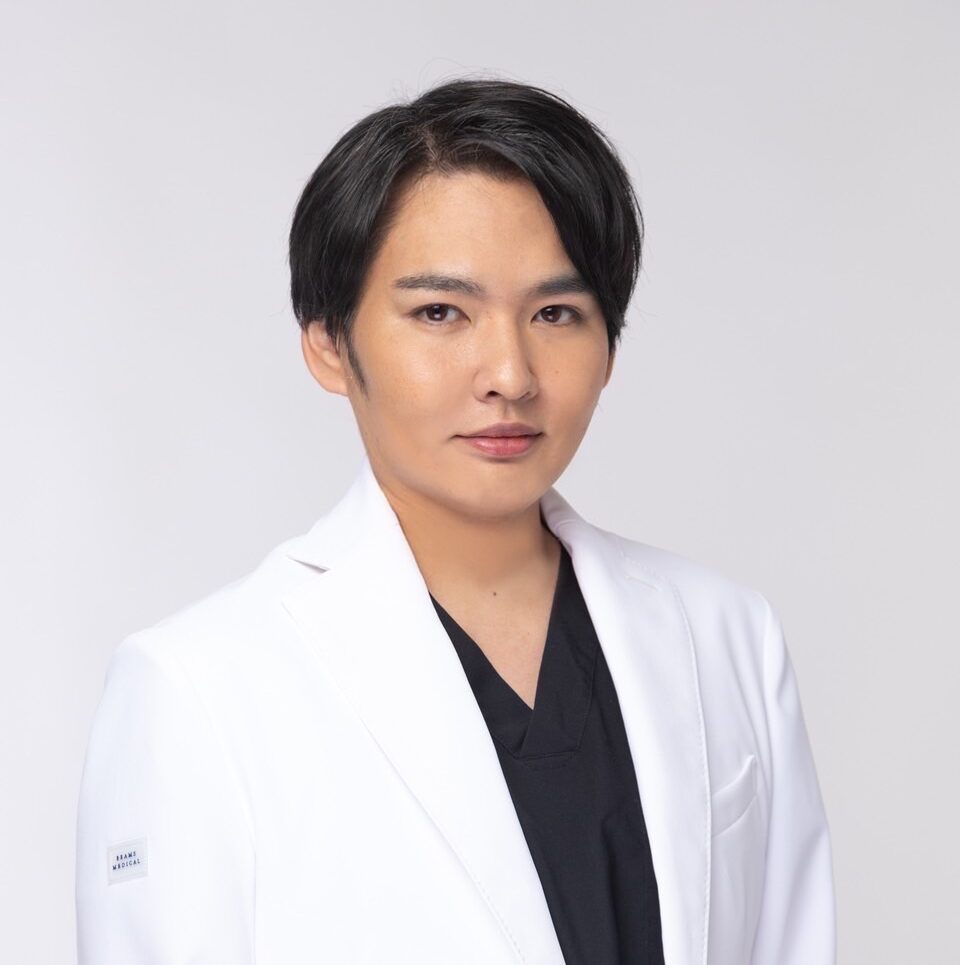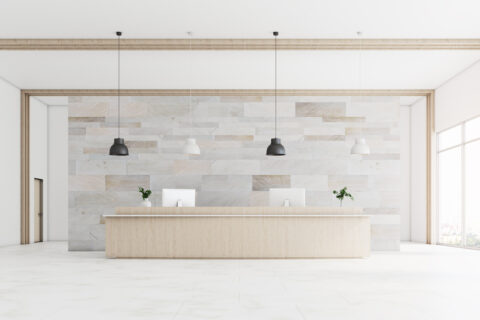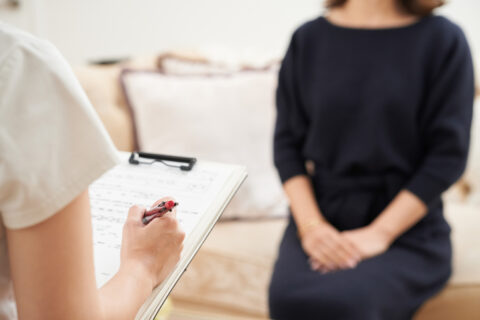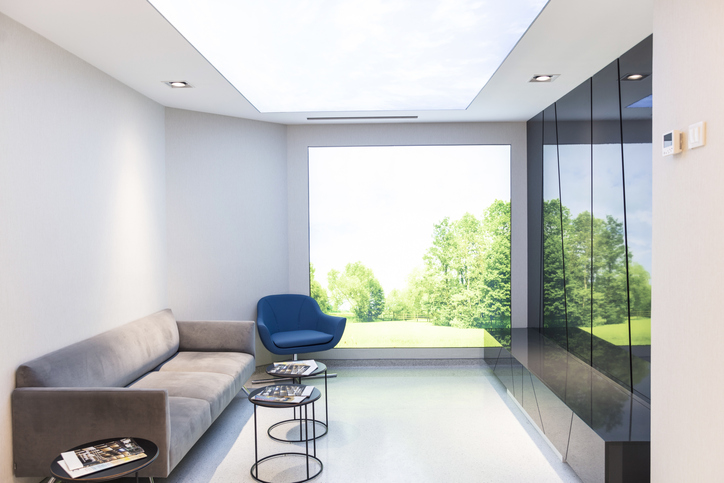Everyone has at one time or another suffered from acne on the face, even as an adult. The skin, especially on the face, is an important symbol of beauty and health. The problem of adult acne can often affect our daily lives by compromising the health of this skin and robbing us of confidence.
This article will provide a detailed explanation of what adult acne is, how it occurs, and what causes it to appear on the face from a scientific perspective. In addition, specific ways to prevent acne and treat acne that has already formed will be presented. We hope this knowledge will help you improve your own skin condition and maintain healthy skin.

Graduated from the Faculty of Medicine, National Kumamoto University. After serving as the director of major beauty clinics in Japan, etc., he opened Aladdin Aesthetic Clinic in 2023. He is a professional in aesthetic medicine with a doctorate in anti-aging research and many years of experience. With the motto of "Toward the realization of cosmetic medicine without lies," he aims to be the "Only One" together with his patients.
Why does adult acne occur in the first place?

Adult acne refers to acne that occurs after puberty. Generally speaking, acne tends to occur during puberty, but acne can also occur in adults. This is caused by various lifestyle factors, physical condition, stress, etc., which result in excessive sebum secretion and disruption of skin turnover.
Acne on the face can also affect one's appearance and lower one's self-esteem and self-esteem, especially since it is located in a prominent area. In addition, if left untreated without proper care, acne can worsen and leave scars.
Adult acne requires different causes and measures than adolescent acne. It can be prevented or improved through daily skin care, dietary changes, and stress management. However, severe acne or acne scarring may require specialized dermatological treatment.
Causes of adult acne
There are many possible causes of adult acne. One common cause of adult acne is hormonal imbalance. During periods of female hormonal imbalance, such as premenstrual PMS, pregnancy, and menopause, acne may occur more easily. In addition, high levels of stress can cause an overproduction of male hormones called androgens, which can increase sebum production and cause acne.
In addition, when sebaceous glands secrete excessive amounts of sebum, the pores become clogged easily. This causes sebum and keratin to mix and harden, blocking the pores and resulting in acne.
In addition, irregular lifestyle and stress can disrupt skin turnover and cause acne outbreaks. In particular, lack of sleep and disordered eating habits directly affect skin health. High intake of high GI foods (foods that rapidly raise blood sugar levels, such as sugar and white rice) causes high insulin secretion, which in turn stimulates sebaceous glands and can lead to excessive sebum production.
| Causes of adult acne | Details |
|---|---|
| Hormonal imbalance | Overproduction of male hormones due to fluctuations in female hormones and stress |
| Excessive sebum secretion | Sebum and keratin mix and block pores |
| Irregular lifestyle and stress | Lack of sleep and poor diet disrupt skin turnover. |
| eating habits | High GI food intake stimulates sebaceous glands, causing excessive sebum production |
What are the causes and problems of acne on the face?
There are several types of acne, each with different characteristics. They include white acne, black acne (keratosis), red acne (inflamed acne), yellow acne (acne that has reached the apex of inflammation), and hard acne (lump acne) that can leave scars.
Acne is caused by excessive sebum production and clogged pores, where bacteria breed and cause inflammation, and when this inflammation becomes chronic, the skin becomes red, swollen, and painful. Furthermore, redness, hyperpigmentation, and unevenness may remain even after the acne has healed. These are called acne scarring and can cause not only cosmetic problems but also psychological stress.
| Types of acne | special characteristic |
|---|---|
| white acne | Acne in its early stages, formed when sebum and keratin clog pores |
| Black acne (keratosis) | Pimples in which the pore openings appear black. Black discoloration due to oxidized sebum and keratin clogging and exposure to air. |
| red acne | Inflamed acne. Red and swollen due to bacterial growth. |
| yellow acne | Acne in which inflammation has reached its peak and pus is visible |
| acne lumps | Acne that is inflamed at a deep level, causing the skin to harden and swell. May leave scars. |
| acquenace car | Traces of skin after acne has healed. Redness, hyperpigmentation, and unevenness. Causing cosmetic problems and psychological stress. |
Acne on the face can cause a loss of confidence in one's appearance and affect one's social activities. Adult acne often results from stress and lifestyle disturbances, which can further increase the cause of the acne, while forcibly crushing facial acne or excessive skin care, such as misconduct in self-care, can inversely damage the skin and worsen the acne. It is important to care for acne in an appropriate manner.
How to prevent adult acne on the face

When it comes to the prevention and treatment of adult acne, it is important to first understand the causative factors and know what measures to take for each. Prevention and treatment of adult acne is not a one-size-fits-all solution; it requires a long-term commitment. Re-evaluating how you interact with your skin and maintaining a healthy lifestyle is the key to successfully dealing with adult acne. Below are some strategies for each of the major causes of adult acne.
Eating Habits
Try to moderate your intake of high GI foods and choose low GI foods; foods with high GI values raise blood sugar levels rapidly and stimulate insulin secretion, which in turn increases sebum production. Conversely, low GI foods slow the rise in blood sugar and help prevent acne.
Consuming foods rich in fiber helps maintain a healthy digestive system and has a positive effect on skin health. Get the nutrients you need for skin health, including vitamins A, C, and E and zinc. These are antioxidants and promote skin repair and metabolism.
About Stress
Moderate exercise can help reduce stress. Exercise has a positive impact on physical and mental health and prevents stress-induced hormonal imbalances.
It is also important to have mental health habits such as relaxation and mindfulness. Deep breathing, meditation, and yoga can help reduce stress.
Hormone Balance
Hormonal balance can be regulated by adjusting the rhythm of your life. In particular, good sleep is important for maintaining hormonal balance in the body. It is important to consult with a health care professional to consider countermeasures during times when changes in hormonal balance are expected, such as during menopause.
Excessive secretion of sebum
Proper skin care is important. Washing the face twice a day (morning and night) is ideal, and soaps and cleansers should be gentle to the skin. It is also important to always moisturize the skin after cleansing, as the skin will try to produce more sebum if excess sebum is removed.
It is recommended that makeup be kept to a minimum and that non-comedogenic (non-pore-clogging) cosmetics be chosen for use.
How should I take care of a pimple on my face?

There are two main types of treatments for acne on the face: pharmaceuticals, which can be purchased over the counter, and treatment by a physician. Pharmaceutical products can be purchased without a doctor's prescription and are effective for mild to moderate acne. The main ingredients include the following.
|
Severe acne or failure to improve with medications available over-the-counter will require prescription treatment by a dermatologist. The following treatments are available
|
The dermatologist may also take the following steps
|
You should never forcefully crush an already formed pimple. This can cause damage to the skin, aggravate the acne condition, and in the worst case, cause acne scars and hyperpigmentation. Daily care can be taken to improve the condition of acne, but if self-care does not improve the condition, or if the symptoms are severe, it is recommended to consult a professional dermatologist.
Other Frequently Asked Questions on Adult Acne.
In addition to the causes and care methods discussed above, the following is a list of frequently asked questions about adult acne and their answers. What is important is to review your daily skin care and lifestyle habits, and if necessary, seek diagnosis and treatment at a medical institution. It is also important to have a clear understanding of your skin condition and take care of it accordingly. However, be sure to consult a specialized medical institution for specific diagnosis and treatment.
Q.What is the difference between adult and adolescent acne?
Adolescent acne is mainly caused by changes in hormonal balance, resulting in increased sebum production. Adult acne, on the other hand, is caused by stress, lifestyle, and internal hormonal imbalances, and tends to occur mainly on the lower half of the face.
Q.Are there any foods or drinks that can cause acne?
While there is no solid scientific evidence regarding the relationship between acne and diet, some studies have shown that sugar and junk food consumption may aggravate acne. Also, while there is some debate about the potential of dairy products to cause acne, it has been shown that this is not the case for all people.
Q.Is adult acne closely related to stress?
Yes, stress is considered a contributing factor affecting adult acne. Increased stress increases the secretion of the hormone cortisol in the body, which may stimulate sebum production. Therefore, stress management is also thought to help prevent and improve adult acne. Other stresses caused by sleep deprivation can reduce immune function and cause skin inflammation. For this reason, getting enough sleep can be helpful in preventing acne.
Q.Does makeup worsen adult acne?
When done correctly, makeup does not cause acne to worsen. However, care must be taken in the choice of cosmetics, how they are used, and the process of washing them off. For example, avoid cosmetics that contain comedogenic (pore-clogging) ingredients, apply cosmetics gently without rubbing, and remove makeup thoroughly at the end of the day.
summary
Adult acne is caused by excessive sebum production, clogged pores, bacterial growth, and inflammation, and stress, irregular lifestyle, unhealthy diet, and hormonal imbalance can cause these problems. The key is daily skin care and lifestyle modification.
Proper cleansing and moisturizing, a healthy diet, adequate sleep, and stress management are essential for acne control. When choosing an acne care product, choose one that contains active ingredients. However, if the product does not suit your skin, stop using it immediately and seek professional medical attention if necessary.
At Aladdin Aesthetic Clinic, based on our many years of experience in cosmetic medicine and cosmetic dermatology and the knowledge of our doctoral degree, we provide counseling that aims to be "only one", offering the best treatment for each person we meet. We offer only the necessary treatments without any unnecessary information or suggestions.
Feel free to use our official LINE account for 24-hour counseling and reservations. Please feel free to contact us for free counseling for the first time or if you have any concerns.





